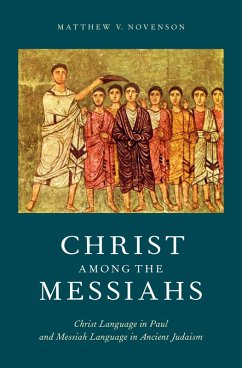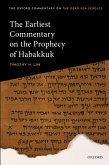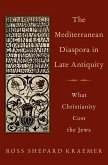Recent scholarship on ancient Judaism, finding only scattered references to messiahs in Hellenistic- and Roman-period texts, has generally concluded that the word ''messiah'' did not mean anything determinate in antiquity. Meanwhile, interpreters of Paul, faced with his several hundred uses of the Greek word for ''messiah,'' have concluded that
christos in Paul does not bear its conventional sense. Against this curious consensus, Matthew V. Novenson argues in Christ among the Messiahs that all contemporary uses of such language, Paul's included, must be taken as evidence for its range of meaning. In other words, early Jewish messiah language is the kind of thing of which Paul's Christ language is an example. Looking at the modern problem of Christ and Paul, Novenson shows how the scholarly discussion of
christos in Paul has often been a cipher for other, more urgent interpretive disputes. He then traces the rise and fall of ''the messianic idea'' in Jewish studies and gives an alternative account of early Jewish messiah language: the convention worked because there existed both an accessible pool of linguistic resources and a community of competent language users. Whereas it is commonly objected that the normal rules for understanding
christos do not apply in the case of Paul since he uses the word as a name rather than a title, Novenson shows that
christos in Paul is neither a name nor a title but rather a Greek honorific, like Epiphanes or Augustus. Focusing on several set phrases that have been taken as evidence that Paul either did or did not use
christos in its conventional sense, Novenson concludes that the question cannot be settled at the level of formal grammar. Examining nine passages in which Paul comments on how he means the word
christos, Novenson shows that they do all that we normally expect any text to do to count as a messiah text. Contrary to much recent research, he argues that Christ language in Paul is itself primary evidence for messiah language in ancient Judaism.
Dieser Download kann aus rechtlichen Gründen nur mit Rechnungsadresse in A, B, BG, CY, CZ, D, DK, EW, E, FIN, F, GR, HR, H, IRL, I, LT, L, LR, M, NL, PL, P, R, S, SLO, SK ausgeliefert werden.









